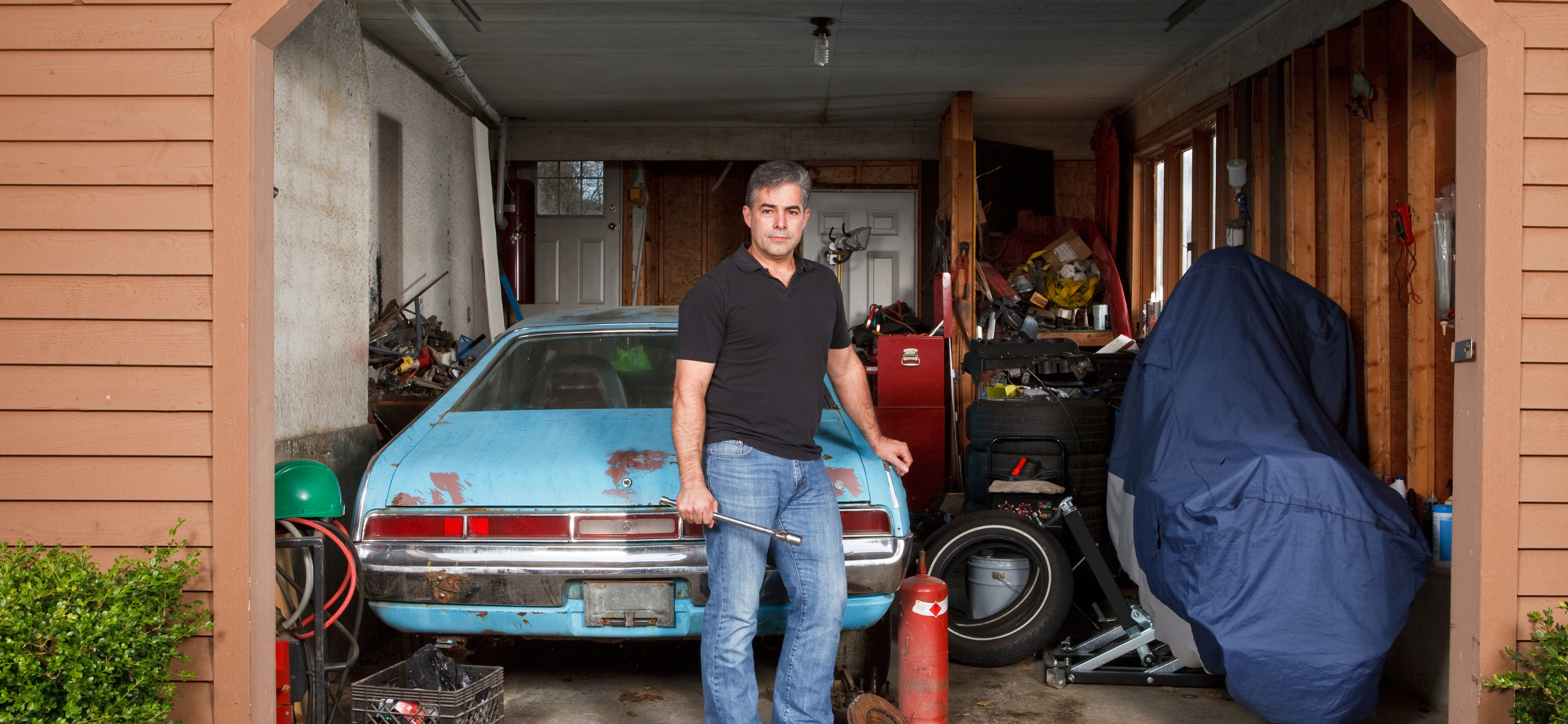Stay ahead of the curve as a political insider with deep policy analysis, daily briefings and policy-shaping tools.
Request a DemoTop 5 ways to stop a squatter from taking over your home

While new legislation in Georgia awaiting the governor's signature would criminalize squatting, realtors say the best solution for squatters is to prevent them from ever getting into your property. (Credit: mikespics)
Homeowners in Georgia and around the U.S. are increasingly finding their properties invaded by squatters — people who have no legitimate lease, permission or legal right to be there, but have figured out how to get in and game the legal system to extend their rent-free stay for weeks, months or even years before they are evicted or ejected.
So, what can a homeowner do to prevent squatters from getting in in the first place? State Affairs consulted realtors in Georgia, who offered this advice:
- Make your property hard to break into. Doors and windows should be secured with heavy-duty hardware, not the low-grade fixtures found in most home improvement stores. Screw down windows or install window locks on every window and sliding glass door. Atlanta realtor and attorney Bruce Ailion gives this advice: invest in strong, door-length strike plates and get a locksmith to install commercial grade locks and bolts in all exterior entryways to keep someone from kicking in the doors.
- Monitor your property. A vacant home is ripe picking for squatters. Visit your home and inspect it at least weekly. Ask neighbors, a local neighborhood watch, or police to keep an eye on it and to let you know if someone seems to be moving in. Install a security alarm system and a video monitoring system with multiple cameras that connect to the police and can record images of people trying to break in.
- Make it look like someone lives there. Install a timer to make the lights go on and off at regular intervals. Have someone open and close the curtains. Keep a car parked in the driveway. Ailion said along with a “Beware of Dog” sign and motion-activated exterior lights, one of his clients also has a motion-activated device that emits the sound of an angry dog barking.
- Put up ‘no trespassing signs’ and make it clear who owns the property. Post hard-to-remove signs that say, “No trespassing. All trespassers will be prosecuted.” Also affix to the inside of windows information about who owns or manages the property, and how to contact them. This makes it harder for people to claim they didn’t know they shouldn’t be there.
- Be careful how you allow prospective renters or contractors to gain access. Some would-be squatters will pose as prospective tenants or building contractors, come to see the place, and then never leave. Using a lockbox with a code for people to let themselves in is convenient for landlords and real estate agents, but is also a way for criminals to gain easy access. A better practice is to meet people in person to provide access, and check their ID to verify that it matches information they previously provided. If you do use a lockbox, use one that allows you to remotely change the code for each person who visits, so it can’t be shared.
If, despite all your efforts, a squatter manages to get into your home, don’t engage in vigilante justice and try to remove them yourself, experts say. Don’t change the locks or shut off the utilities. You may be held criminally or civilly liable for such actions. Call the police, call a lawyer, and be prepared to follow the law in combating the occupation of your home.
Fortunately for homeowners in Georgia, new legislation known as the Georgia Squatter Reform Act that criminalizes squatting and offers more legal remedies for victimized property owners now awaits the governor’s signature.
Read this related story:
Have questions or comments? Contact Jill Jordan Sieder on X @journalistajill or at [email protected]
And subscribe to State Affairs so you do not miss an update.
X @StateAffairsGA
Instagram @StateAffairsGA
Facebook @StateAffairsGA
LinkedIn @StateAffairs
Professionals still face licensing delays amid state’s transition to online system
The Gist Georgia’s professionals and business owners are still struggling to obtain professional licenses in a timely manner. As the Secretary of State’s Office rolls out its new Georgia Online Application Licensing System to expedite the process, the efficiency of this new process is being put to the test. What’s Happening Thursday morning at the …
Controversy over AP African American Studies class grows
Rashad Brown has been teaching Advanced Placement African American Studies at Atlanta’s Maynard Jackson High School for three years. He’ll continue to do so — even though the state’s top education official removed it from the list of state-funded course offerings for the upcoming school year. While Brown prepares to start teaching his class on …
Students, teachers, lawmakers blast decision to end AP African American history classes
ATLANTA — A coalition of lawmakers, civil rights leaders, clergy, educators and students Wednesday called on the state’s education czar to rescind his decision to drop an advanced placement African American studies class from the state’s curriculum for the upcoming school year. “This decision is the latest attack in a long-running GOP assault on Georgia’s …
Kamala Harris’ presidential bid reinvigorates Georgia Democrats
Georgia Democrats have gained new momentum heading into the November election, propelled by President Joe Biden’s decision to bow out of his reelection bid and hand the reins to Vice President Kamala Harris. The historic decision, announced Sunday, is expected to prove pivotal in the national and state political arenas and breathe new life and …




